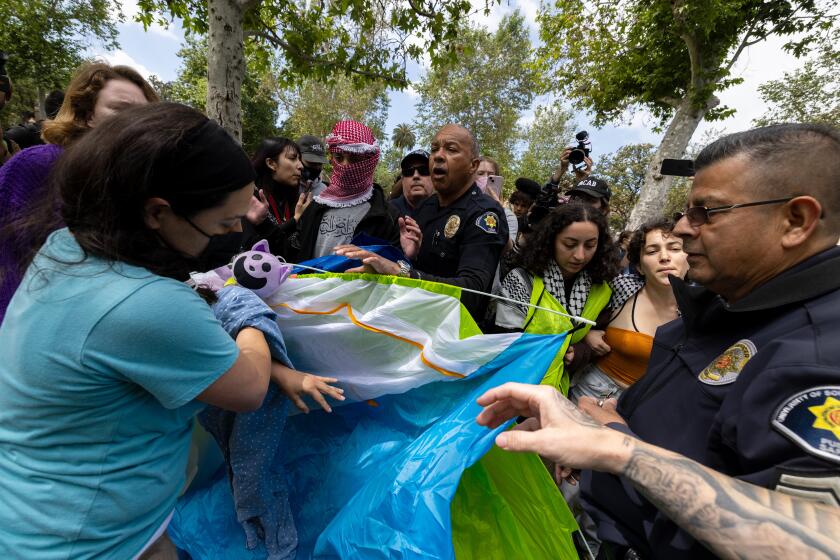Readers React: Forget college applications. It’s time for college lotteries.

To the editor: Like author Ben Orlin, I checked the “no” box on a request to continue interviewing candidates for admission as Yale freshmen. (“Why I won’t reenlist as a Yale alumni interviewer,” Opinion, Oct. 11) And as a longtime high school teacher, I perhaps feel more strongly about the “insanity” of the college admissions process than he does.
I found that I spent most of my time — especially after the rejection letters came out — explaining to students why they would be perfectly happy and perhaps better off at places that may not have the “name” but may very well offer a better education.
In 18 years of interviewing, two of my interviewees were admitted.
Philip J. Fickling, San Diego
..
To the editor: With all due respect to Orlin’s Op-Ed article, I do enjoy interviewing local students who apply to my alma mater.
It may well have been that personal touch that got me into Harvard (‘62), as my interviewer was quite interested in my motorcycle travels around Europe the summer before.
What a personal interview does is give the overburdened admissions committee — faced with piles and piles of boring paperwork — a fresh look at an applicant, with observations that did not appear through test scores and essays.
Clement Salvadori, Atascadero
..
To the editor: Orlin is my hero. Not only is he a teacher (the most noble of professions), but he has shed a bit of light on college interviews.
After years as a college counselor, I have assisted hundreds of students as they journeyed along the crazy college superhighway.
After the applications and the essays, we also work on interview skills: how to dress; how to sit (with your hands in your lap); how to shake hands while making eye contact; how to be prepared for, and with, questions about a particular college.
And yet, every year many of the most exemplary students who have overachieved in obtaining top grades, devoted hours to extracurricular activities and have contributed in amazing ways to society are not accepted to the colleges that they have chosen.
Psychologist Barry Schwartz’s suggestion of using a lottery system for some of those students who have risen to the standards set by the college (without an interview) is an outstanding idea whose time has arrived.
Nanci Leonard, Los Angeles
..
To the editor: This is actually the principle of the flat maximum. It means that the qualifications of all applicants at the very top of the curve are so similar that all of them are good enough to succeed if accepted.
Trying to differentiate among them is truly a fool’s errand. That’s why the suggestion about the use of a lottery is not far-fetched. Instead, elite colleges and universities persist in trying to sell the fiction that merit is the deciding factor.
Walt Gardner, Los Angeles
Follow the Opinion section on Twitter @latimesopinion and Facebook
More to Read
A cure for the common opinion
Get thought-provoking perspectives with our weekly newsletter.
You may occasionally receive promotional content from the Los Angeles Times.






